Grab Bag #57
Salty diner memories and Jack the Ink Thrower's reign of terror.
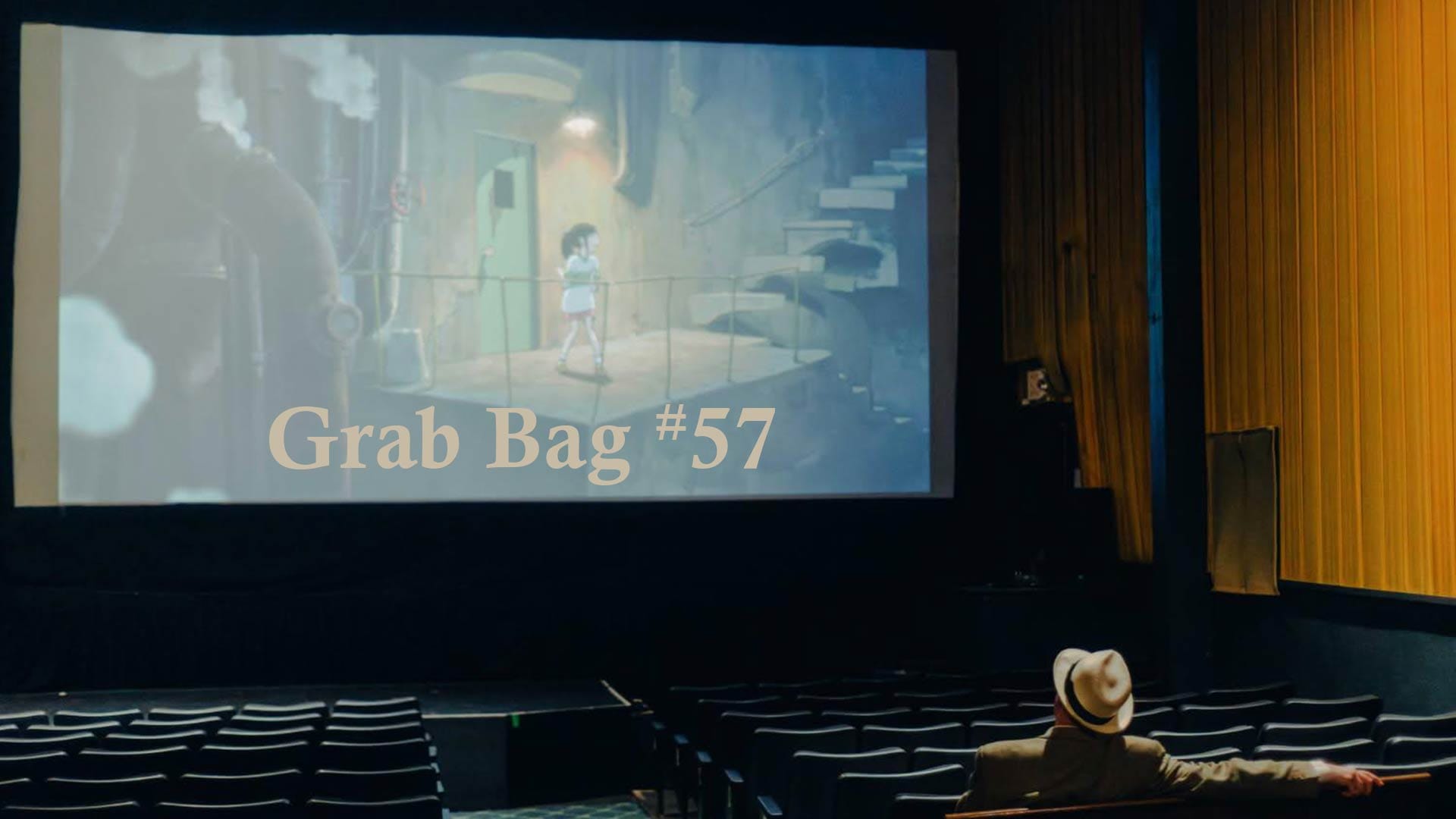
It has been awhile since I let the whole world read a Grab Bag, so let us be generous this go-around. (Friends get to read all of every Grab Bag, something you might consider, might you?)
We always start off with...
Guess Where
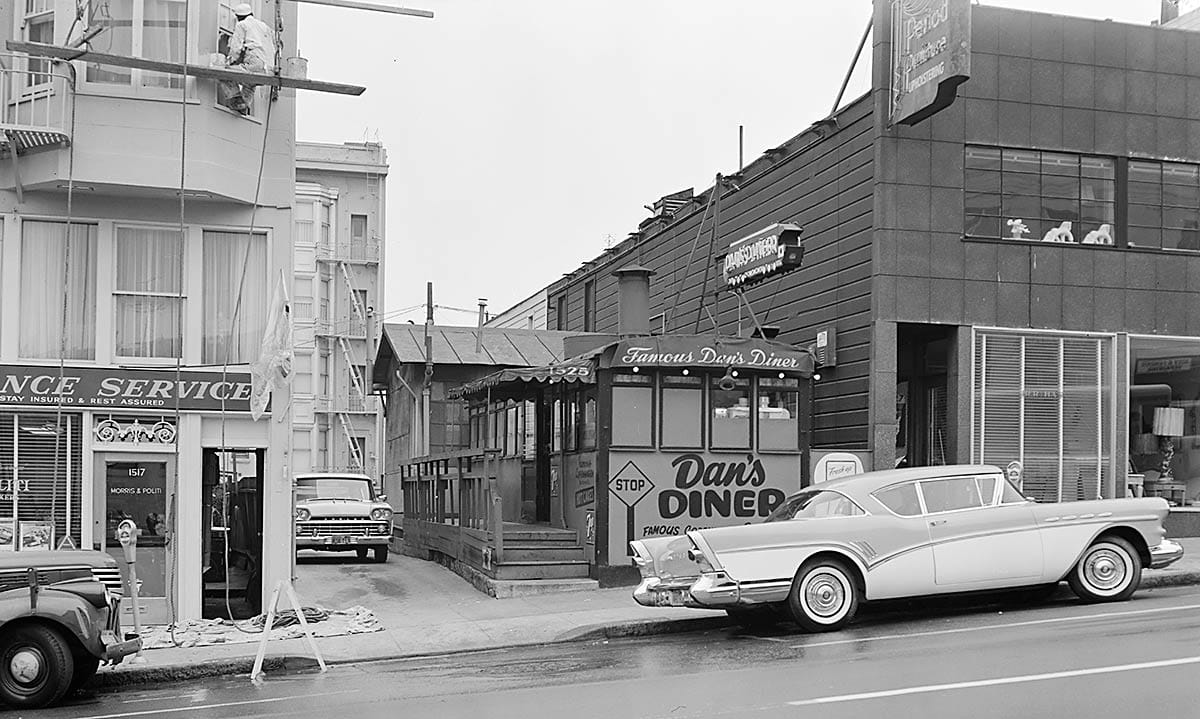
Step right up and make your guess... The where is quite do-able for many San Franciscans and I expect the when is get-able for the car buffs out there. Answer at the bottom of the email. 😄
Spirited Away
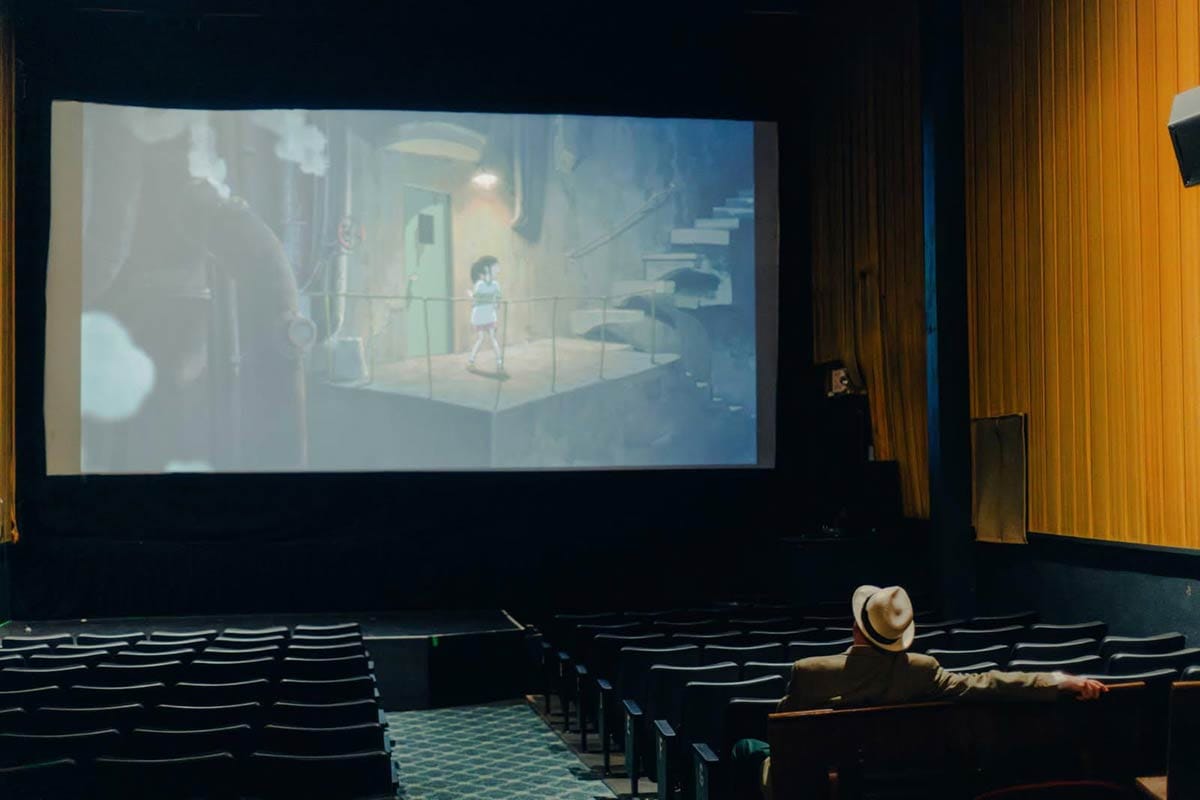
Anna Mackenzie (@a.mackenz) took this cool photo of me watching Spirited Away at the Balboa Theatre during the very fun and unusual birthday party for Nate T. (F.O.W.).
Every Friday morning I am at Simple Pleasures when it opens at 6:00 a.m. and Anna usually pours my coffee. Nate and my old friend Diane A. usually drop by and hang out, helping me with a haiku or telling me back-to-back-to-back shaggy-dog stories.
They are all different kinds of artists. Nate is a poet. Diane is a musician. Anna is a photographer. Right now, she has a show at SFOG at 1314 Grant Avenue. Lots of moody, dynamic, sometimes abstract shots of carp in Golden Gate Park’s Spreckels Lake. One very cool one—metallic glints and grainy greens—is destined for a spot in my house after the show.
The shop is bright, its offerings geared to locals who want to wear a shirt with a Doggie Diner logo or their old neighborhood name on the front. But Anna’s photography pulls you into a different world. Check it out.
Speaking of Spirited Away…
Miz Brown’s Feed Bag
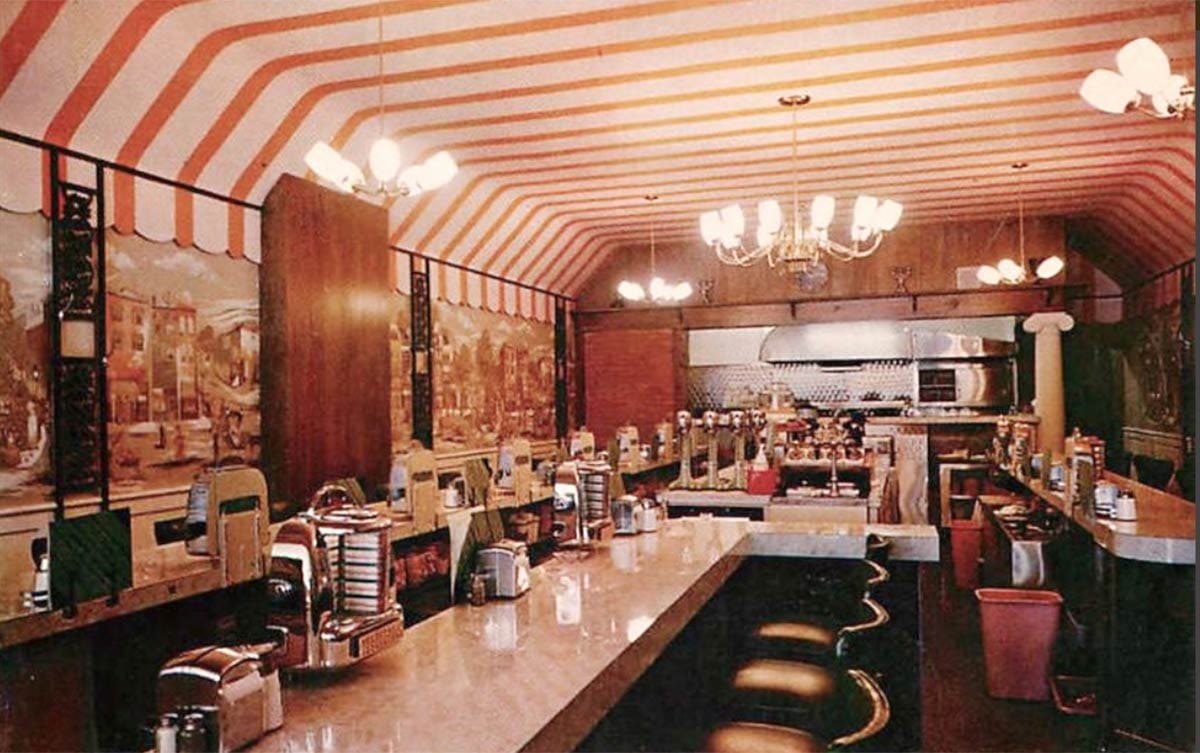
A Proustian bite into a good tomato the other day had me thinking about the first time I ever had a BLT.
It was at Miz Brown’s Feed Bag on California Street in Laurel Village. I was a kid, eating out with my mother. I noticed Bacon, Lettuce, and Tomato sandwich on the menu and was shocked that someone would put such a combination together. My mother encouraged me to try something new. Somehow I was persuaded.
I haven’t had a piece of bacon in more than 20 years, but I can right now taste the salty crunch, chill crisp, and slight juiciness of that first bite.
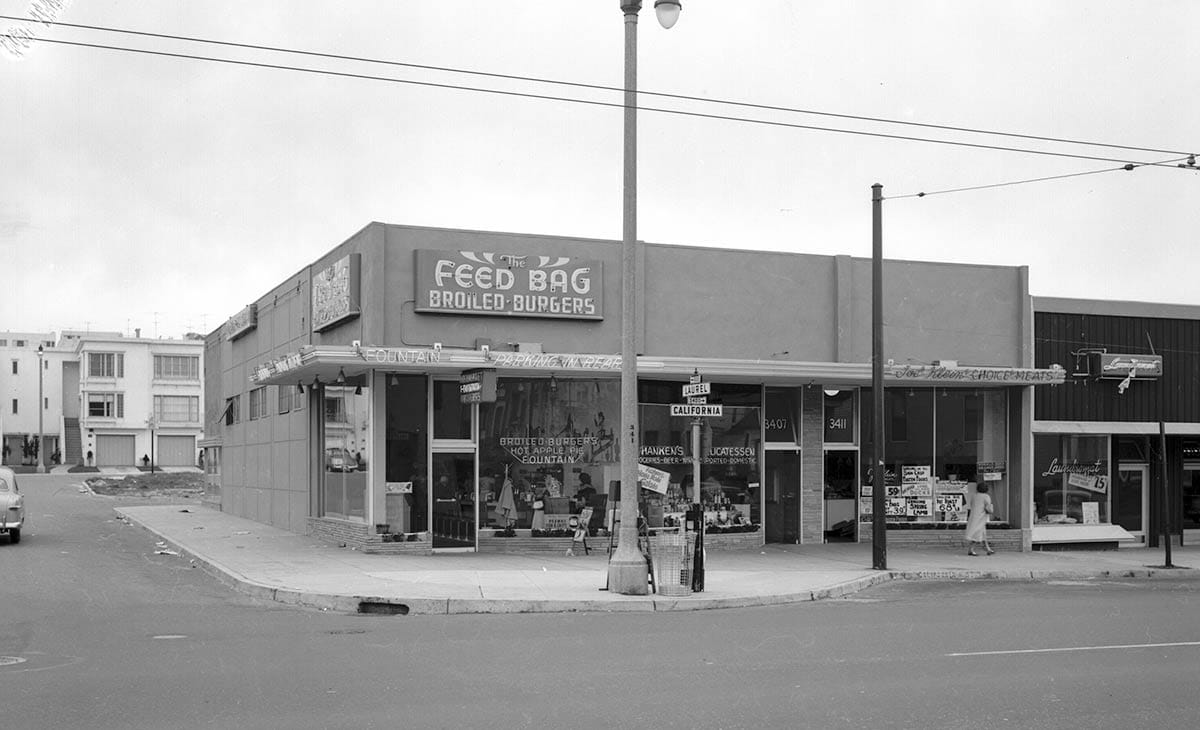
Miz Brown’s was a mini-chain run by the Meharry family. (Patriarch Harry Meharry had one of the great names...) There was another on Clement Street next to the Coliseum Theater, which was closer to our old home. I think of it every time I pass the German beer house now in that space.
They had tabletop jukeboxes and vinyl booths, the type of place my mom would want to have lunch with me today. The last one closed in early 2004.
Seaman’s Monument Update
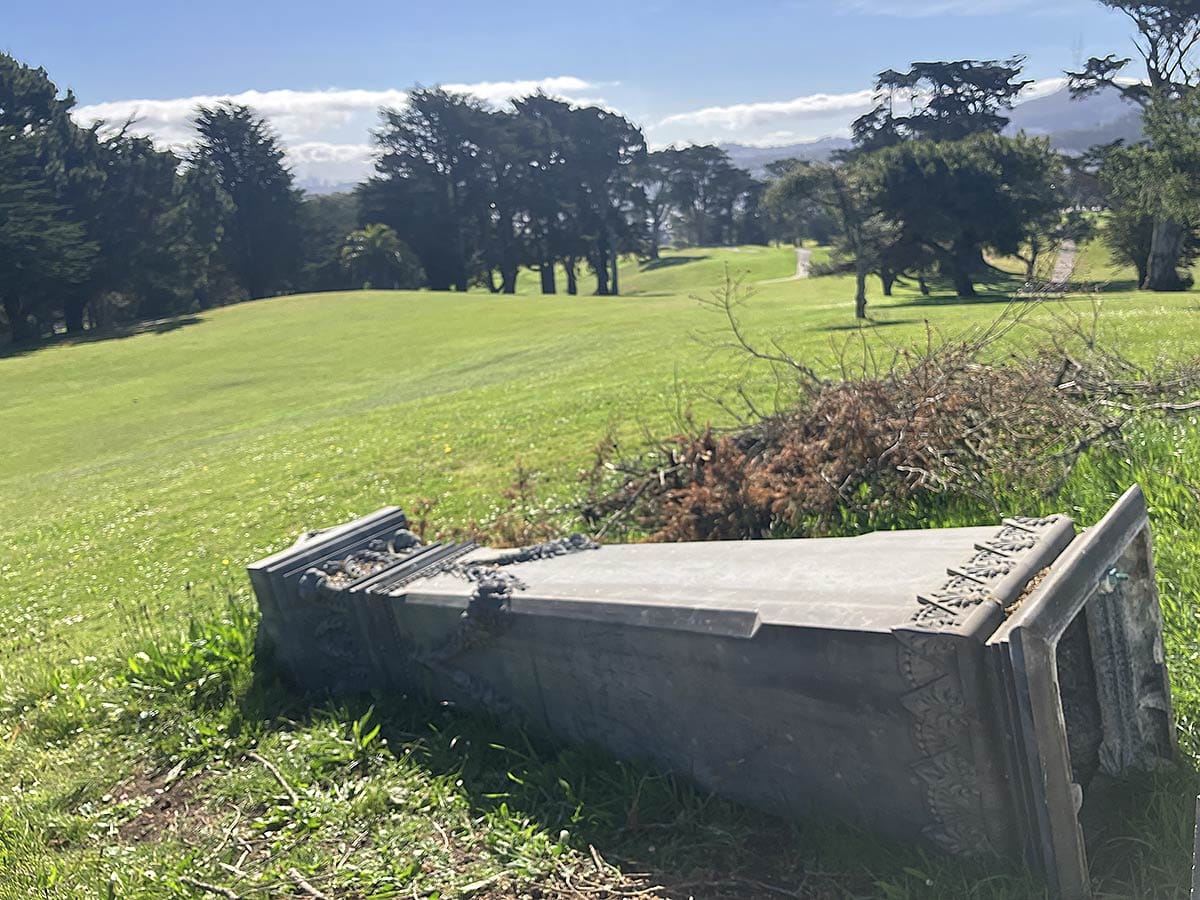
Last spring (2024), a fallen tree branch toppled the upper section of the Ladies’ Seaman’s Friend monument in Lincoln Park. The monument was one of two relics from when the park was San Francisco’s municipal burial ground. (You can read more about City Cemetery’s “life” across the last third of the 19th century in the 2022 San Francisco Story Annual.)
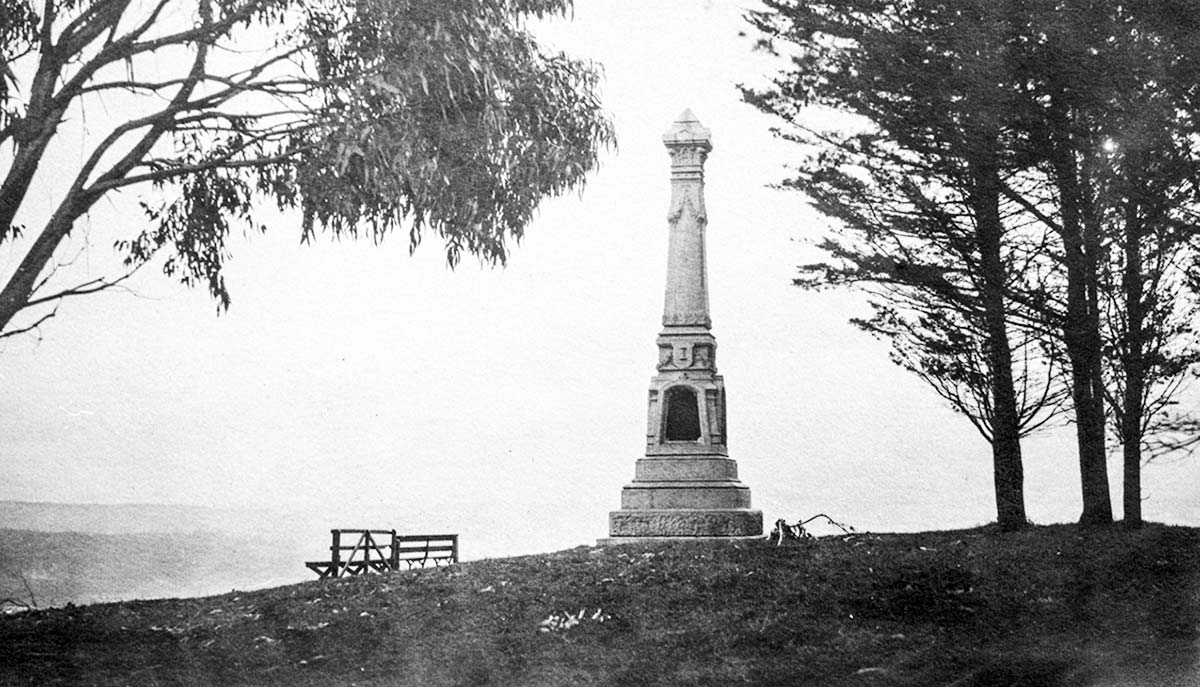
The Recreation and Parks Department promised to restore the monument and on a recent visit to the park I noticed the heavy zinc column has finally been removed from the turf.
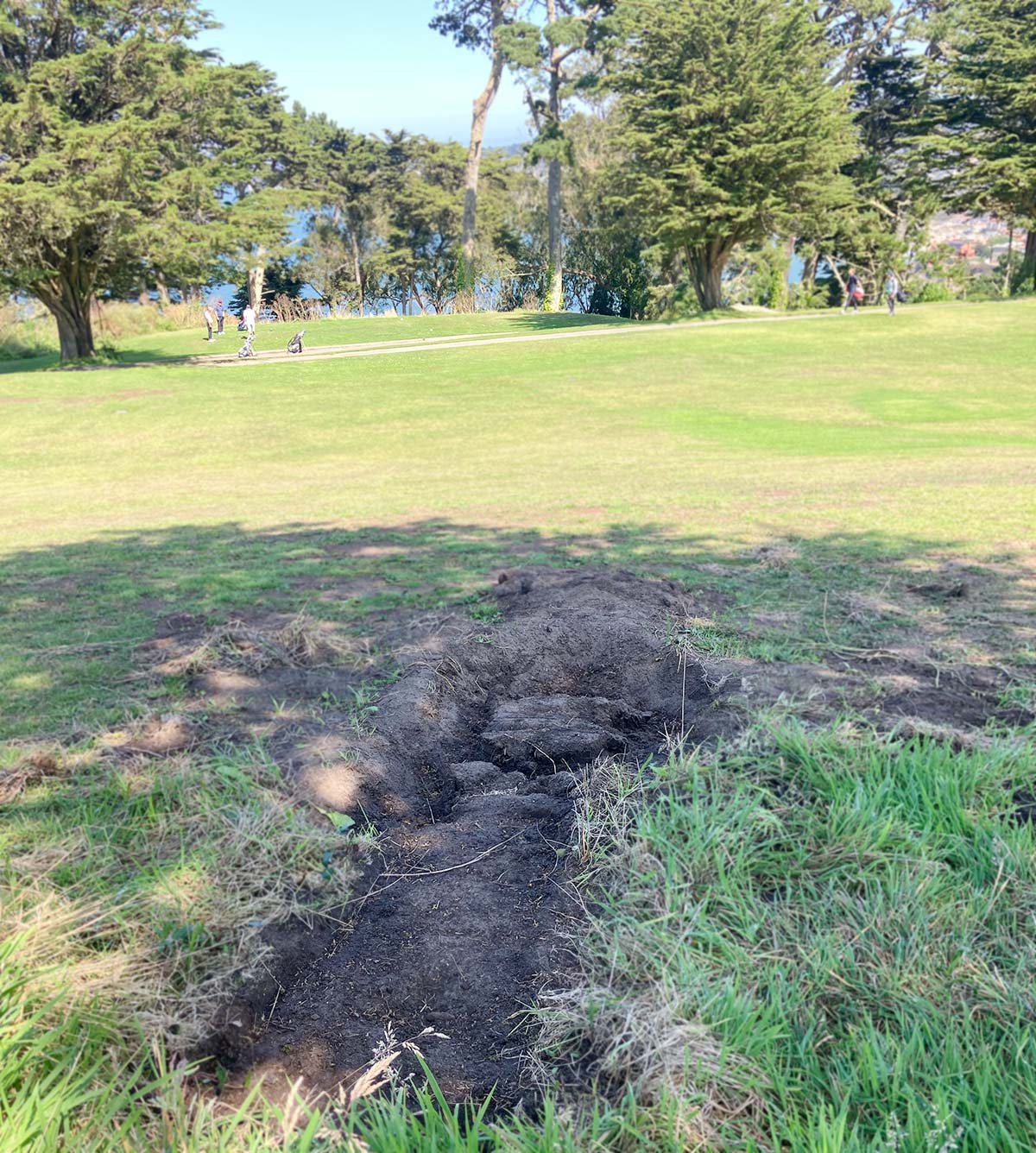
I didn’t look too closely in the deep depression. The remains of over 10,000 individuals still lie buried under the golf course. Evidence of their presence crops up from time to time. Sometimes it’s best to keep walking.
I will keep you posted on what I learn from Rec and Park.
Bernal Cut, 1930
After writing about the Dolores Bridge last week, where I briefly mentioned the Bernal Cut created for the railroad line, I randomly came across this 1930 photo:
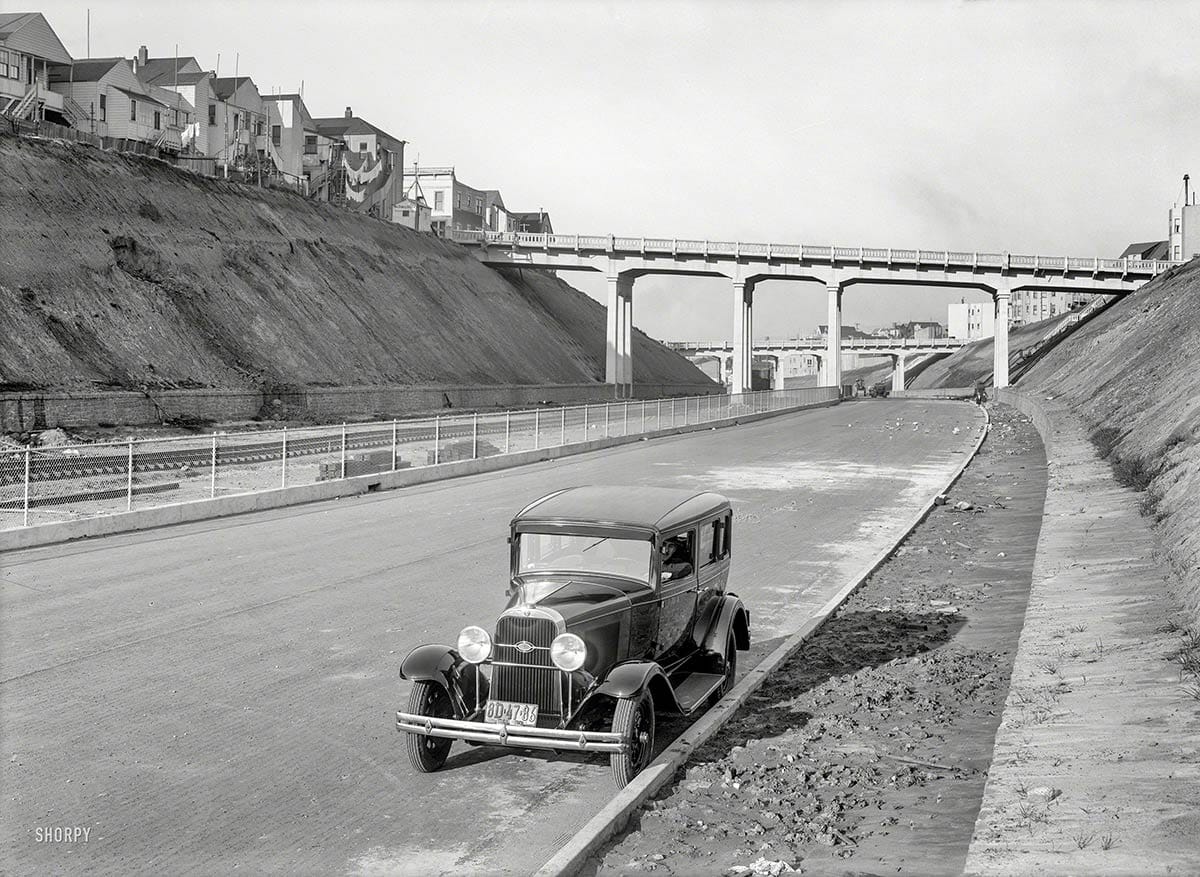
The newly widened cut and the bridges crossing it at Richland and Highland avenues look very impressive, but I’m not sure I’d feel secure living in one of those Arlington Street houses on the ridge line. (Does anyone reading this live in one?)
The photo was on the Juniper Gallery’s Shorpy website, which has many historical photos from all over. A search of “San Francisco” brought up some good ones, including this 19th century view of California Street looking west from Sansome Street:
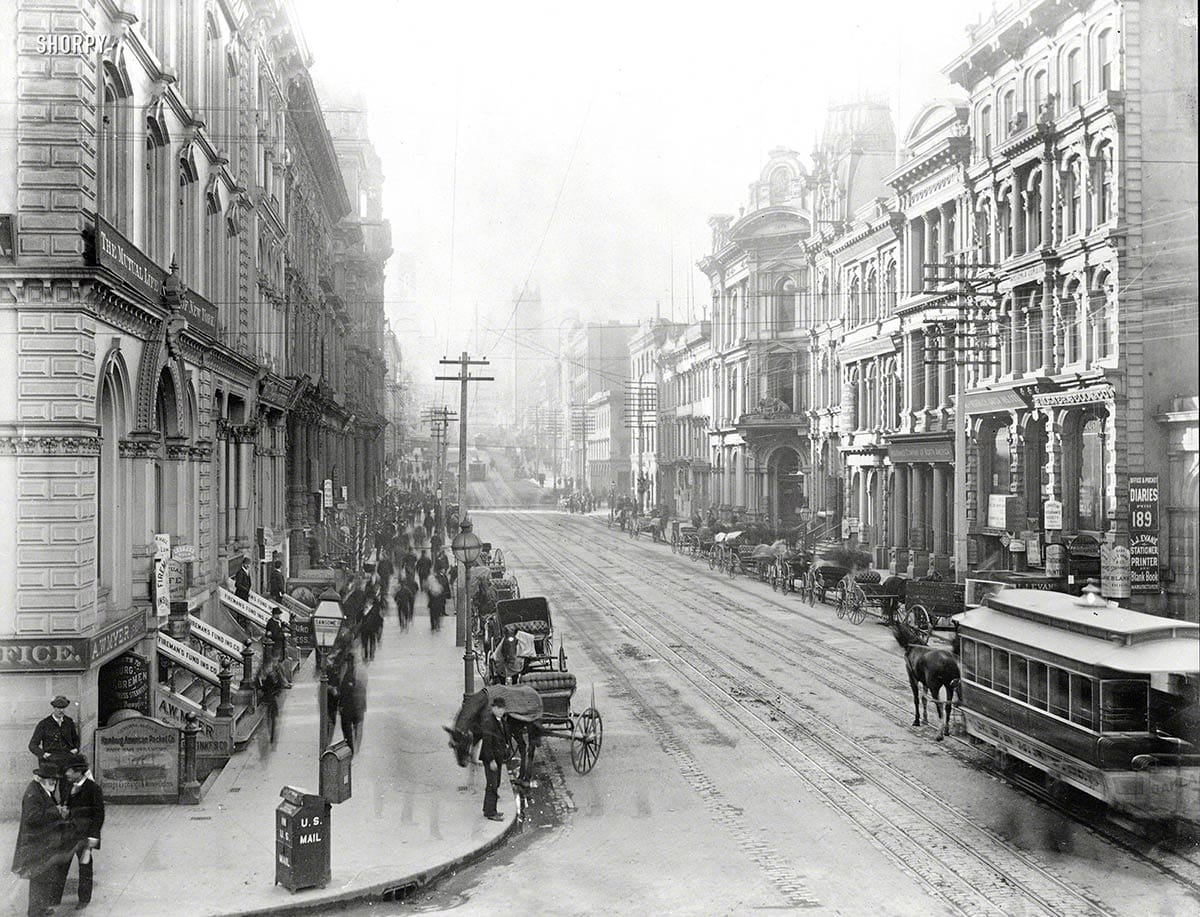
Halfway up this block on the right is the cast-iron “Atlas” archway of the London and San Francisco Bank (written about before). You can also just make out the hitching post, which I have been lobbying to have reinstalled (see Grab Bag #45).
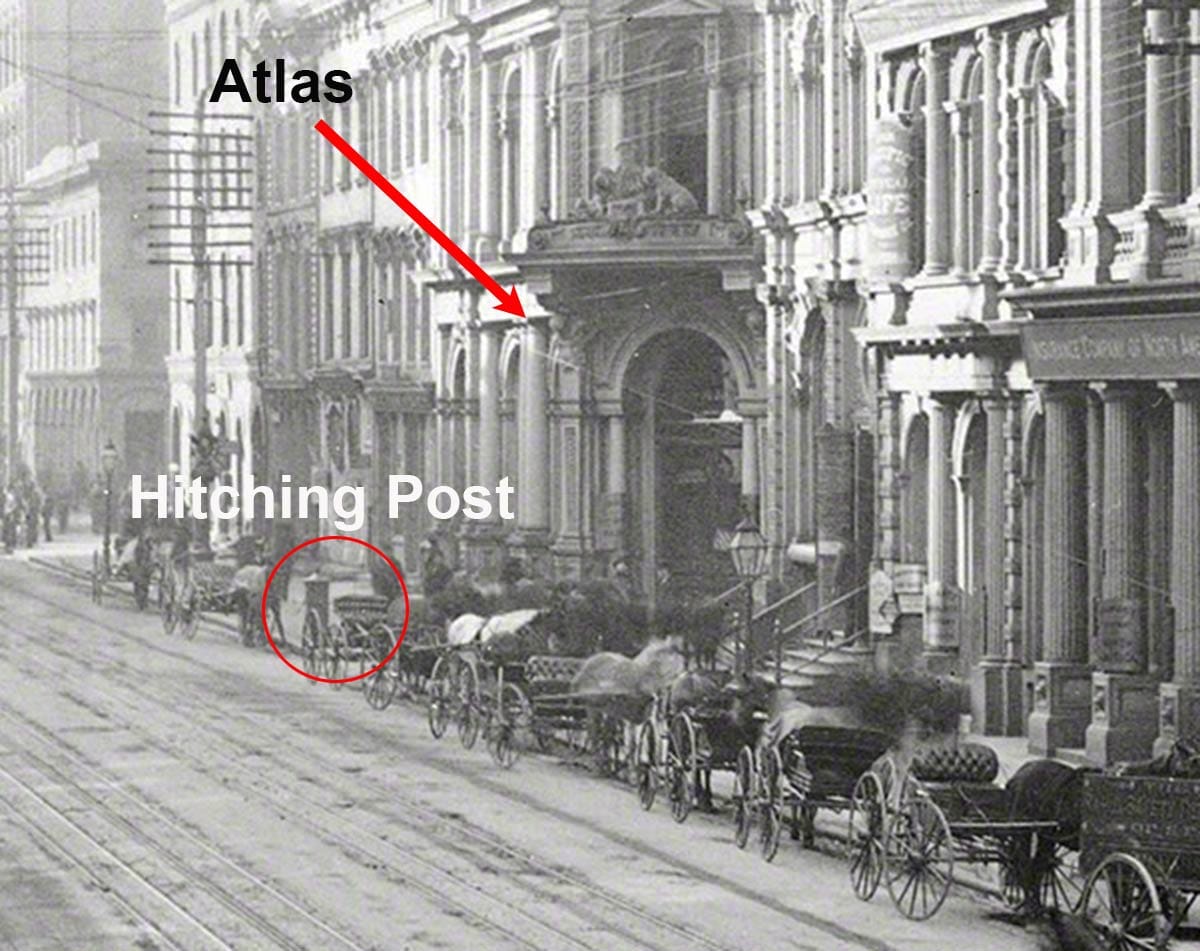
There’s some news there, as the 1959 Wells Fargo Building now occupying the lot was recently sold. The new owners want to put a bowling alley in the basement (among other things), but they better remember to fix up and reinstall the hitching post too.
Jack the Ink Thrower
In July 1908, police chief William Biggy dedicated a squad of detectives, hired female sleuths to work undercover, and even enlisted his own 13-year-old son in response to a mysterious spree of disturbing depredations.
Starting in late May 1908, someone walking Van Ness Avenue was surreptitiously splattering ink on the gowns of some of the best-dressed women of San Francisco.
Miss Alita Ghirardelli contended she was “one of the earliest sufferers from the ink-thrower,” losing a light-colored gown. Then Mrs. Harry Gray’s new pearl-gray frock was ruined. After Mrs. H. W. Ellicott had her silk number be-smudged, Mr. H. W. Ellicott wrote a personal note to the Chief of Police. The chief came to investigate the same day.
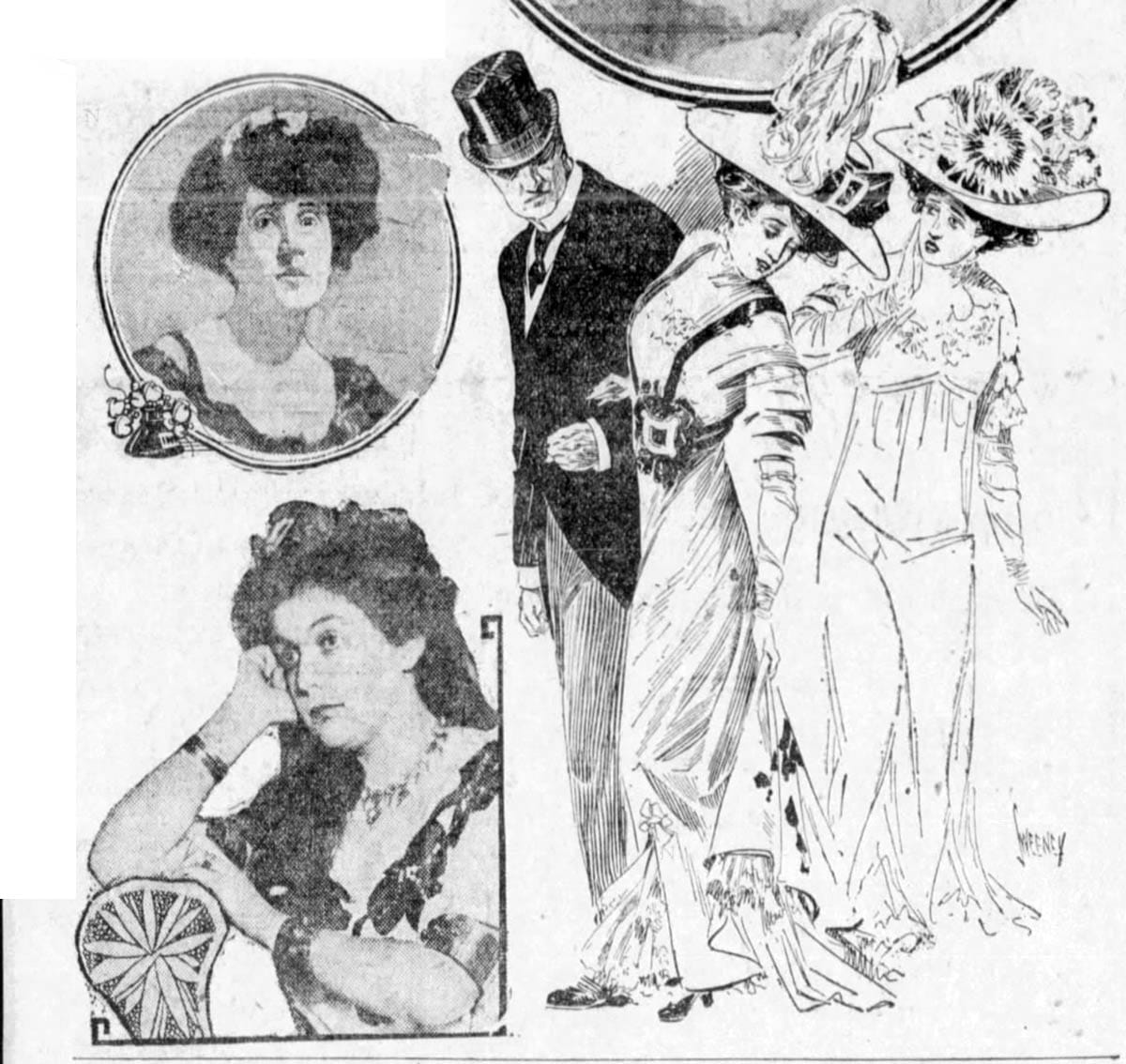
An individual suspiciously carrying several fountain pen filters was nabbed by the police and “shipped out of the city,” yet the crime wave continued along the strip of department stores which had relocated to Van Ness Avenue after the 1906 earthquake and fire.
Chief Biggy put out fashionably attired females as decoys and set his teenage son up on a corner with instructions to eye-ball passing women who might be targets. (Tough job.)
But the vandal was canny, stealthy, and worked from behind. The women often did not discover the crime until an hour, a day, or even a week later. Miss Keeney, another victim of the inky spurter, noted he operated “with the greatest skill.”
Hundreds, even thousands of dollars of haute couture was put out of commission. High society criticized and hounded the police for their ineptitude in catching “Jack the Ink Thrower.”
Chief Biggy, in typical fashion, blamed the victims: “If any woman who suddenly finds her dress squirted over with ink would set up a scream instead of stopping to examine the damage, there would be more opportunity to bring an officer at once to the spot.”
Such things had happened before. In 1895, the perpetrator of a wave of ink bespatterings was never caught. On London’s Bond and Regent streets in 1907, a similarly mysterious miscreant evaded capture. A medical man posited that perhaps the defiler had a “rooted dislike for white garments and may be unable to control his desire to change their appearance.”
(Professor Woody diagnoses straightforward misogyny with perhaps some class resentment.)
By June 1908, San Franciscans read headlines from the San Francisco Examiner like “Ink Thrower Holds Women in Terror.” The desperate police began surveillance of avowed and suspected anarchists with the theory that the inflammatory speeches of Emma Goldman had inspired “the type who fear to throw anything more explosive than ink.”
In August, the Chronicle agreed there was indeed a “reign of terror” and a new, alarming theory was propounded. “[T]he act is one which would more likely be committed by a woman than a man” declared Mrs. John T. Costello, who had the skirt of her white, first-time-worn gown unwillingly speckled. “A woman could more easily escape observation.”
Jack(ie?) the Ink Thrower was almost caught on the UC Berkeley campus after squirting the frock of Miss Leila McKibben, “one of the best-known girls in college.” It was definitely a man noticed slipping around a corner after several large spots were detected on McKibben’s dress. Her Kappa Kappa Gamma sorority was put on high alert and the Berkeley police jumped into action.
The close call in the East Bay seemed to scare Jack. Dresses stayed clean. Weeks, then months, passed. The fashionable set began to breathe easier in their corsets.
Three years later, in 1912, a tailor named Abraham Blank was caught downtown flicking ink on the skirt of a young woman. He was arrested for malicious mischief.
Was this Jack caught at last or a copycat ink thrower?
The name “Mr. Blank” is more than suspicious. Let the conspiracy theories commence.
Guess Where Answer
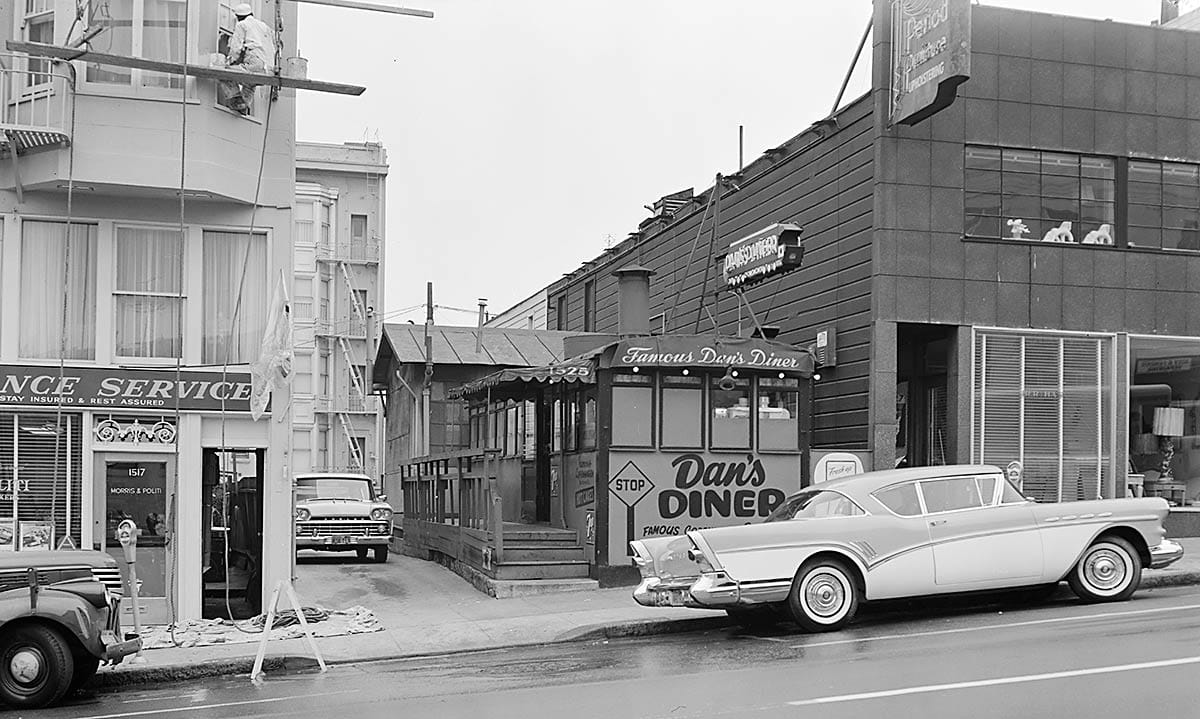
Dan’s Diner is modified but still alive as the Grubstake Diner at 1525 Pine Street between Polk Street and Van Ness Avenue. Alive for now, as there have been development plans for the site percolating over the last few years.
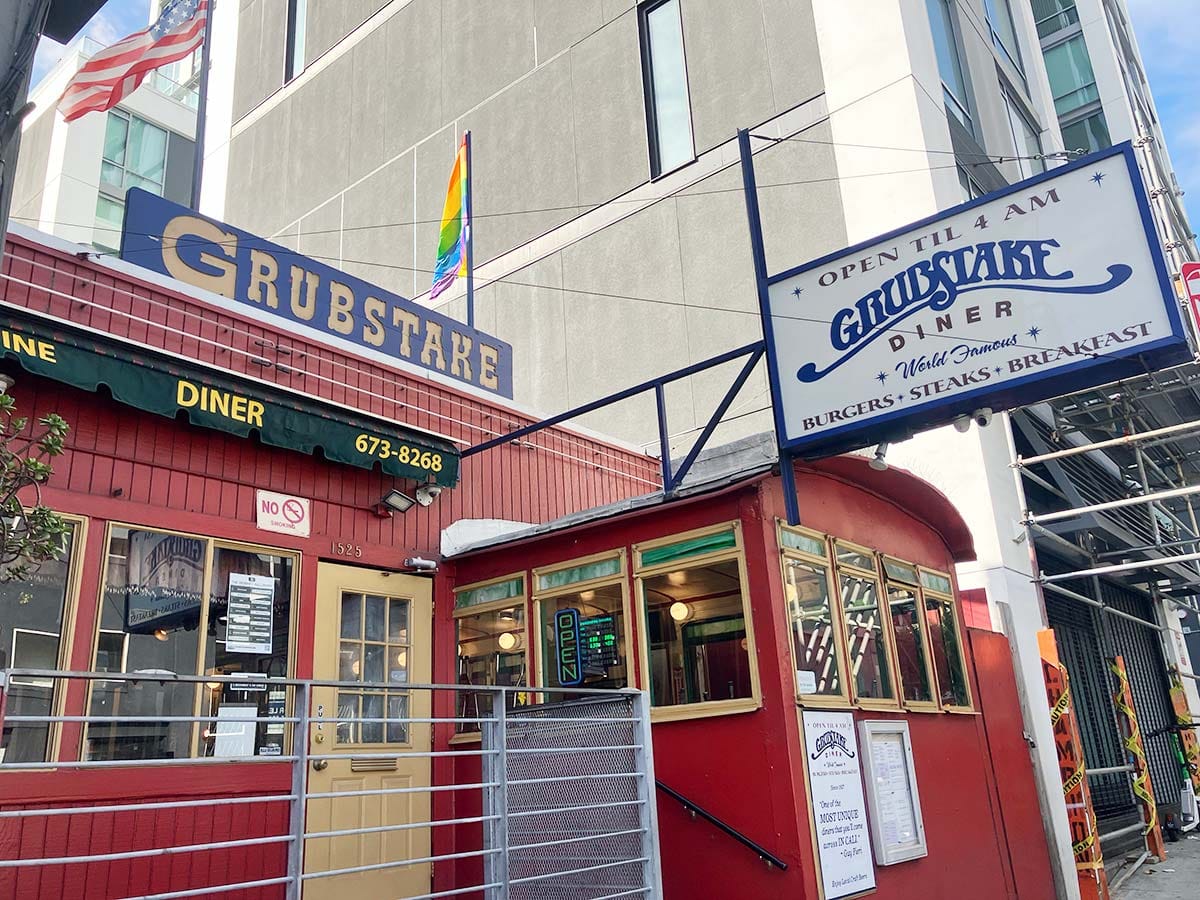
The date of the San Francisco Assessor’s Office photo is November 17, 1960. That late 1950s (’57?) Buick Century Riviera in front might have tipped you off on the time frame.
Thanks for playing Friends!
Woody Beer and Coffee Fund

Bill G. donated $5 to the Woody beverage fund for every person to whom he forwarded last week’s Dolores Bridge post. Ed F. (F.O.W.) gave as well, so now I have a full wallet ready to buy you a beer, coffee, or lime rickey. (Never had one.) Let me know when you are free!
Sources
“Throws Ink on Frocks of Society Dames,” San Francisco Bulletin, December 6, 1907, pg. 15.
“Ink Thrower Holds Women in Terror and Escapes,” San Francisco Examiner, July 10, 1908, pg. 11.
“Think Vandal an Anarchist,” San Francisco Chronicle, July 10, 1908, pg. 16.
“Ink Thrower at Work Once More,” San Francisco Chronicle, August 14, 1908, pg. 8.
“Co-Ed’s Dress is Ruined by Vandal,” San Francisco Examiner, August 25, 1908, pg. 8.
“Ink Thrower Jailed,” San Francisco Bulletin, June 18, 1912, pg. 5.

